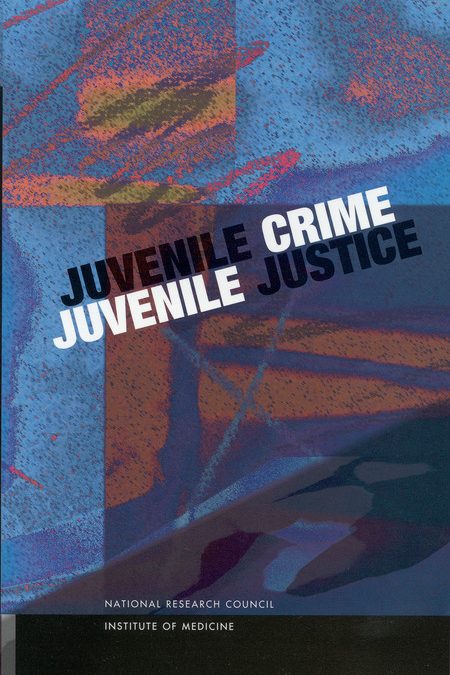-
Best Australian Pokies Best Payout
Play Free 777 Pokies Online
What Are the Best Australian Pokies to Win Big On
What Are the Best Online Pokies with Low Minimum Deposits for Real Money in Australia
New Australian Pokies Accepting PayID
What Are the Best Strategies to Win in Online Pokies with Bonus Rounds in Australia
Tips for Winning Top Australian Pokies
What Online Casinos Offer Free Play Pokies with Welcome Bonuses in Australia
Australian Slot Games
Payout Ratio Pokies with Welcome Bonus

Juvenile crimes relation to criminal justice system. Prompt: In California since 2016, a judge can charge juveniles as adults for certain violent crimes through a process known as a judicial waiver.
Juvenile crimes relation to criminal justice system
The judge must consider multiple criteria, including the seriousness of the crime and its impact on the victim or the victim’s family, the suspect’s criminal history, and the suspect’s past attempts at rehabilitation. This is a compromise between charging all juveniles who commit these violent crimes as adults and never charging juveniles as adults regardless of the type of crime they commit.
***Take a reasonable/moderate stance against prosecuting juveniles as adults***
In California specifically, Governor Newsom signed Senate Bill 823 in 2020, which “requires the state’s youth prisons to shut down by 2023 and has stopped allowing counties to send youth to the state Department of Juvenile Justice (DJJ) as of July 1, 2021” (Rosales, EdSource). Now, it is up to each of the state’s 58 counties to determine what to do with these youth who would have in the past been sent to state-run youth prisons.
Considering all the arguments that you have read and discussed during this module, write a thoughtful and well-documented open letter to be published on a Website for those interested in the issue of juvenile crime, particularly state policymakers. In your open letter, explain your viewpoint about what the state should do with juveniles who commit serious crimes and provide evidence that supports your position.
Respond to the arguments of those who have different perspectives. Be sure to respond to all the different major arguments that you have read. Make clear whose ideas or words you are using by including author names and titles, but an open letter does not require in-text citations (page numbers) or a reference list.
Considerations:
How should juveniles who commit serious crimes be treated in the criminal justice system? When, if ever, should they be punished as adults if they have committed “adult” crimes?
What evidence is there that juveniles can mature and return to productive life after committing a serious crime?
To what extent should the desires of victims and the families of victims be taken into consideration in charging and sentencing juveniles who have committed crimes against them?
Are juveniles of color equitably treated in the juvenile justice system? In other words, the same as white juveniles who commit the same crime?
Entering the Conversation:
What is the issue? Try to learn its fundamentals.
What are the different perspectives and opinions out there?
What are the causes of the issue? What are its effects?
What are the potential problems with this issue? What are the potential solutions for these problems?
What is my personal opinion on the issue, and why do I feel this way? What evidence informs and supports my position? Take a reasonable/moderate stance against prosecuting juveniles as adults Sources provided: https://www.commonlit.org/en/texts/the-cost-of-prison-in-dollars-and-lives https://www.commonlit.org/en/texts/prison-is-a-poor-deterrent-and-a-dangerous-punishment “Should 11-year olds be charged with adult crimes” (attatched via PDF) “Juvenile InJustice” (attached via PDF)
How juvenile offending differs from adult offending
It is widely accepted that crime is committed disproportionately by young people. Persons aged 15 to 19 years are more likely to be processed by police for the commission of a crime than are members of any other population group.
In 2007–08, the offending rate for persons aged 15 to 19 years was four times the rate for offenders aged more than 19 years (6,387 and 1,818 per 100,000 respectively; AIC 2010). Offender rates have been consistently highest among persons aged 15 to 19 years and lowest among those aged 25 years and over.
The proportion of crime perpetrated by juveniles
This does not mean, however, that juveniles are responsible for the majority of recorded crime. On the contrary, police data indicate that juveniles (10 to 17 year olds) comprise a minority of all offenders who come into contact with the police. This is primarily because offending ‘peaks’ in late adolescence, when young people are aged 18 to 19 years and are no longer legally defined as juveniles.
The proportion of all alleged offending that is attributed to juveniles varies across jurisdictions and is impacted by the counting measures that police in each state and territory use. The most recent data available for each jurisdiction indicate that:
- juveniles comprised 21 percent of all offenders processed by Victoria Police during the 2008–09 financial year (Victoria Police 2009);
- Queensland police apprehended juveniles (10 to 17 year olds) in relation to 18 percent of all offences during the 2008–09 financial year (Queensland Police Service 2009);
- juveniles comprised 16 percent of all persons arrested in the Australian Capital Territory during the 2008–09 period (AFP 2009);
- eighteen percent of all accused persons in South Australia during 2007–08 were juveniles (South Australia Police 2008);
- juveniles were apprehended in relation to 13 percent of offence counts in Western Australia during 2006 (Fernandez et al. 2009); and
- in the Northern Territory during 2008–09, eight percent of persons apprehended by the police were juveniles (NTPF&ES 2009).
Attachments
